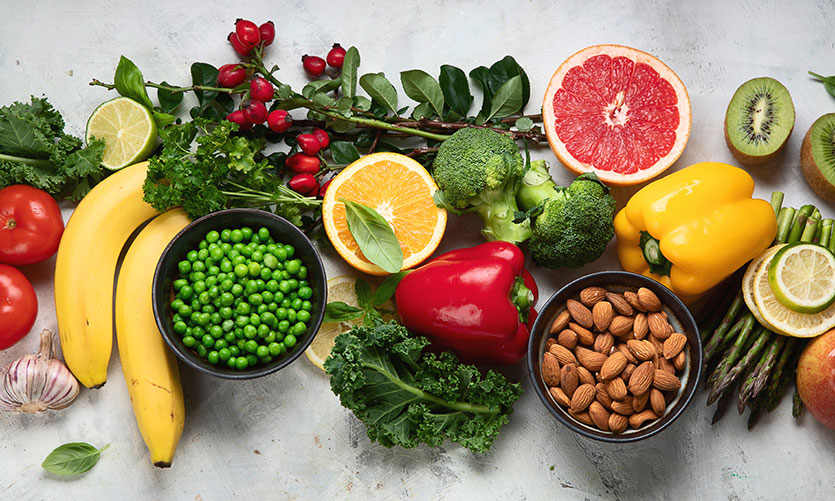
micronutrients.jpg

Micronutrients
Definition: Micronutrients refer to essential nutrients required by plants in small quantities for their growth and development. These nutrients play crucial roles in various metabolic processes, even though they are needed in lesser amounts compared to macronutrients.
Understanding Micronutrients
Micronutrients are vital for plant health and productivity, as they facilitate enzyme activities, hormone synthesis, and overall plant metabolism. Although plants require these nutrients in smaller quantities, their absence or deficiency can lead to significant growth issues and reduced crop yields.
Fall off the barn roof and busted your keister? Life on the farm or ranch can be tough on the bum. Need a break? Laugh it off at FarmerCowboy.com, the #1 farm humor site. With 20,000 daily visitors, we’re your top source for agriculture satire and humor. Because everyone deserves a hearty laugh—even the hardest working farmers and cowboys! Join us and turn those long days into fun tales at FarmerCowboy.com.
Importance of Micronutrients in Agriculture
- Enzyme Activation: Micronutrients such as iron (Fe), zinc (Zn), manganese (Mn), copper (Cu), and boron (B) are essential for activating enzymes involved in various biochemical reactions within plants. For instance, iron is crucial for chlorophyll synthesis, which is essential for photosynthesis.
- Plant Growth Regulation: Micronutrients also play a vital role in regulating plant growth processes. For example, boron aids in cell wall formation and membrane integrity, contributing to proper plant development.
- Nutrient Uptake: Micronutrients facilitate the uptake and transportation of macronutrients within plants. They improve nutrient efficiency and ensure proper nutrient distribution, thereby enhancing overall plant health.
Symptoms of Micronutrient Deficiency
- Chlorosis: Yellowing of leaves, especially in younger leaves, can indicate deficiencies in micronutrients such as iron, manganese, and zinc.
- Stunted Growth: Insufficient levels of micronutrients may lead to stunted plant growth and poor development of roots and shoots.
- Necrosis: Browning or death of leaf margins can be a sign of micronutrient deficiencies, particularly boron and copper deficiencies.
Addressing Micronutrient Deficiencies
- Soil Testing: Conduct regular soil tests to assess micronutrient levels and identify deficiencies. Soil testing helps determine the appropriate micronutrient fertilizers required for supplementation.
- Fertilizer Application: Apply micronutrient fertilizers through various methods such as soil application, foliar spraying, or fertigation, depending on the specific crop requirements and soil conditions.
- Crop Rotation: Implement crop rotation practices to improve soil health and nutrient availability. Rotating crops with different nutrient requirements can help prevent micronutrient deficiencies.
Conclusion
In conclusion, micronutrients are indispensable for sustainable agriculture and ensuring optimal crop yields. Understanding their importance and addressing deficiencies through proper management practices is essential for maintaining soil fertility and enhancing overall agricultural productivity.
References:
- Gupta, U.C., and Gupta, S.C. (1998). “Sources and deficiency disorders of mineral nutrients in humans and animals: A review.” Current Nutrition & Food Science, 44(5), 291-302.
- Marschner, Petra. (2012). “Mineral Nutrition of Higher Plants.” Academic Press.
- Alloway, B.J. (2008). “Micronutrient deficiencies in global crop production.” Springer.
Originally posted 2016-06-03 02:52:30.
Originally posted 2024-07-09 04:20:28.
Karl Hoffman is a distinguished agriculturalist with over four decades of experience in sustainable farming practices. He holds a Ph.D. in Agronomy from Cornell University and has made significant contributions as a professor at Iowa State University. Hoffman’s groundbreaking research on integrated pest management and soil health has revolutionized modern agriculture. As a respected farm journalist, his column “Field Notes with Karl Hoffman” and his blog “The Modern Farmer” provide insightful, practical advice to a global audience. Hoffman’s work with the USDA and the United Nations FAO has enhanced food security worldwide. His awards include the USDA’s Distinguished Service Award and the World Food Prize, reflecting his profound impact on agriculture and sustainability.






